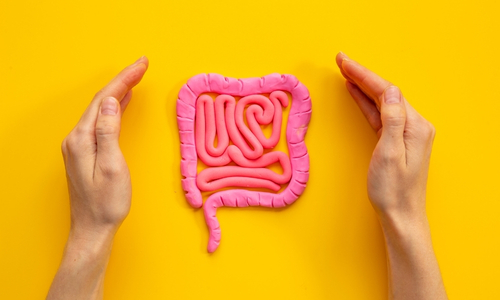Gut health is the foundation of your overall well-being. Your digestive system isn’t just responsible for processing the food you eat; it’s also linked to your immune system, mood, and energy levels. A healthy gut means fewer illnesses, better energy, and a happier you! When it comes to caring for your gut, Gastroenterology experts are the professionals who understand the intricacies of how your digestive system works and how to keep it running smoothly.
What is Gut Health?
Gut health refers to the balance of microorganisms in your digestive tract, which includes your stomach, intestines, and colon. This balance is crucial because it affects how well your body absorbs nutrients, fights off infections, and even how you feel mentally. Did you know that about 70% of your immune system is housed in your gut? That’s why taking care of it is so important.
Common Gut Issues
Gut problems can be tricky to manage, but understanding the common issues is the first step. Here are a few common digestive disorders:
- IBS (Irritable Bowel Syndrome): Characterized by bloating, cramping, and changes in bowel movements.
- GERD (Gastroesophageal Reflux Disease): Causes acid reflux and heartburn, and can damage the esophagus over time.
- Leaky Gut Syndrome: A condition where the lining of the intestine becomes permeable, allowing toxins and undigested food particles into the bloodstream.
How Diet Affects Gut Health
You’ve probably heard the saying, “You are what you eat.” This couldn’t be truer when it comes to gut health. Processed foods, sugary snacks, and fatty meals can wreak havoc on your digestive system, leading to issues like bloating and indigestion. On the flip side, a diet rich in fiber can keep things moving smoothly.
Foods That Support Gut Health
To support your gut, focus on including these types of foods in your diet:
- Fermented Foods: Things like yogurt, kefir, sauerkraut, and kimchi are rich in probiotics, which are beneficial bacteria that help keep your gut balanced.
- High-Fiber Foods: Vegetables, whole grains, and legumes are excellent for your digestive health as they help to “sweep” your digestive tract clean and support bowel regularity.
The Role of Probiotics and Prebiotics
You’ve probably seen ads promoting probiotics, but what are they? Probiotics are live bacteria that are good for your gut, helping to maintain or restore its natural balance. Prebiotics, on the other hand, are fibers that feed the good bacteria in your gut. You can find prebiotics in foods like bananas, onions, and garlic.
The Gut-Brain Connection
Ever had “butterflies” in your stomach before a big event? That’s your gut and brain communicating. The gut-brain connection is real, and stress can throw off the balance in your gut, leading to digestive issues like IBS or indigestion. That’s why it’s essential to manage your stress for a healthier gut.
Mindful Eating for Better Digestion
Mindful eating is a practice where you focus on the act of eating itself. This means savoring each bite, chewing slowly, and paying attention to how your body feels. By practicing mindful eating, you can improve digestion and avoid overeating.
Simple Lifestyle Changes to Improve Gut Health
You don’t need to overhaul your entire life to see benefits in your gut health. Simple changes can make a huge difference:
- Exercise regularly: Physical activity helps stimulate digestion.
- Stay hydrated: Drinking enough water is essential for digestion.
- Get enough sleep: Poor sleep can negatively impact your gut, so aim for 7-8 hours per night.
Signs You May Need to See a Gastroenterologist
If you’re experiencing persistent digestive issues, it might be time to consult a gastroenterologist. Watch out for signs like:
- Chronic bloating or abdominal pain
- Frequent heartburn
- Changes in bowel movements
If these symptoms persist, don’t ignore them—they could be signs of a more serious issue.
Myths About Gut Health
There are plenty of myths surrounding gut health. Let’s debunk a couple of the most common ones:
- Myth: You need to “detox” your gut regularly.
Truth: Your body naturally detoxes through your liver and kidneys. - Myth: All bacteria are bad for you.
Truth: Your gut is full of good bacteria that help keep your digestive system running smoothly.
Natural Remedies for Gut Issues
If you’re looking for natural ways to soothe your gut, here are a few options:
- Herbal Teas: Peppermint and ginger teas are known to aid digestion and ease nausea.
- Ginger: This root has natural anti-inflammatory properties and can help with bloating and gas.
How Gastroenterologists Can Help
Gastroenterologists specialize in diagnosing and treating digestive issues. If you’ve been dealing with persistent gut problems, they can run tests such as endoscopies or colonoscopies to get a closer look at what’s going on and provide tailored treatments.
Long-Term Benefits of a Healthy Gut
Maintaining a healthy gut does more than just keep you regular. A well-functioning digestive system supports your immune system, helps with weight management, and even boosts your mood and mental well-being.
Conclusion
Caring for your gut doesn’t have to be complicated. By making small changes to your diet and lifestyle—like eating more fiber, reducing stress, and staying hydrated—you can improve your digestive health and overall well-being. If you ever feel unsure about what’s going on with your gut, don’t hesitate to consult a gastroenterologist for expert advice.
FAQs
- What are the signs of poor gut health?
Common signs include bloating, gas, diarrhea, constipation, and stomach pain. - Can stress really affect my gut?
Yes, stress can cause or worsen digestive issues like IBS and indigestion. - What foods should I avoid for better gut health?
Limit processed foods, sugary snacks, and fried foods for optimal gut health. - How can probiotics help improve digestion?
Probiotics introduce beneficial bacteria into your gut, helping to balance the microbiome and improve digestion. - When should I see a gastroenterologist?
If you experience persistent digestive problems, like chronic bloating or changes in bowel movements, it’s time to see a specialist.

